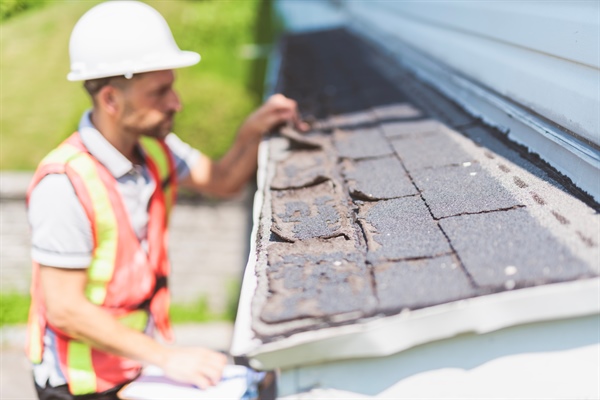Legal Considerations for Hiring Storm Damage Contractors

When storm damage strikes, homeowners face the critical task of swiftly and effectively navigating repairs and reconstruction. Choosing the right contractor is crucial, but the legal considerations that accompany such decisions are equally important.
Understanding these legal aspects can protect homeowners from potential disputes and ensure that repairs are completed as expected. This article will explore key legal considerations every homeowner should know when dealing with storm damage contractors.
From legal protections available to homeowners to how to craft a comprehensive contract, each area offers specific insights that can safeguard a homeowner’s interests during the often turbulent storm recovery process.
The Twin Cities General Contracting experts understand the complexities of storm damage restoration and compliance. Keep reading to learn the key legal considerations for protecting your home and investment.
Legal Protections for Homeowners When Hiring Contractors
Homeowners are often protected under local and state laws that regulate home improvement and repair contracts. These laws typically require contractors to be licensed, provide warranties, and adhere to contract terms explicitly. Homeowners need to verify that a contractor holds the necessary licenses and insurance, providing protection against fraud and substandard work.
Additionally, consumer protection laws offer recourse for homeowners who encounter deceptive or unfair business practices. Homeowners should always request a written contract that clearly outlines the scope of work, materials to be used, timelines, payment schedules, and warranty details. Understanding these legal protections can significantly mitigate risks when hiring storm damage repair contractors.
For more detailed insights into protecting your home and investment, visit storm damage repair services.
Ensuring a Contract Covers All Aspects of Storm Repair
To ensure all aspects of storm damage repair are covered, homeowners should insist on a detailed contract that comprehensively addresses all potential areas of repair. This includes specifying the work, the materials to be used, and any subcontracting arrangements. A thorough contract helps prevent misunderstandings and ensures both parties understand expectations.
A critical component is the inclusion of a clause on dispute resolution, change orders, and unforeseen circumstances, which might affect the timeline and costs. Homeowners should also ensure that the contract specifies the contractor's responsibilities regarding permits and compliance with local building codes.
Understanding these elements can help ensure a thorough and accountable repair process. Consider consulting with a roofing contractor for specific details on what to include in your contract.
Red Flags to Watch for in Storm Repair Contracts
When reviewing storm repair contracts, be vigilant for red flags that could indicate potential problems. One major red flag is a lack of detail in the scope of work or payment terms. Vague contracts can lead to disputes over what was agreed upon, potentially resulting in incomplete or unsatisfactory work.
Other warning signs include contractors who demand a large down payment upfront or pressure you to sign a contract quickly without proper review. Contractors who are unwilling to provide references or proof of insurance should also be approached with caution. Conducting due diligence and consulting with legal or professional advice before signing any contract is important.
Awareness of these red flags can protect homeowners from entering unfavorable agreements.
Handling Disputes with Contractors Legally
Disputes with contractors over storm damage repairs can be stressful. Legal avenues exist to handle such disagreements effectively. Initially, try to resolve issues directly with the contractor through clear communication and negotiation. If this fails, consider mediation as a less adversarial and cost-effective option.
If disputes escalate, arbitration or legal action may be necessary. Homeowners should keep detailed records of all communications, agreements, and transactions, as these documents can be crucial in legal proceedings. It's advisable to consult with a lawyer specialized in contract law to explore your legal options and prepare adequately for any necessary legal steps.
Handling disputes legally and proactively can prevent further complications and help ensure a fair resolution.
Essential Elements in a Storm Damage Repair Contract to Protect Both Parties
A well-crafted storm damage repair contract should include several key elements to protect the homeowner and the contractor. These include a clear description of the work to be performed, a detailed list of materials, pricing, payment schedule, and terms for changes or unforeseen circumstances.
The contract should also stipulate the expected start and completion dates, warranty information, and how disputes will be handled. Including a termination clause that outlines conditions under which either party may cancel the contract is also advisable.
How Twin Cities General Contracting Can Assist With Storm Damage Repairs
Twin Cities General Contracting is dedicated to providing top-tier storm damage repair services. Our comprehensive approach ensures that every repair process is covered, offering homeowners peace of mind.
We understand the complexities of storm damage repairs and are prepared to guide you through each step. For a detailed consultation or to request a quote, please visit our website and connect with our experts.
Contact us today and learn more about how we can assist you in navigating the complexities of storm damage repairs.